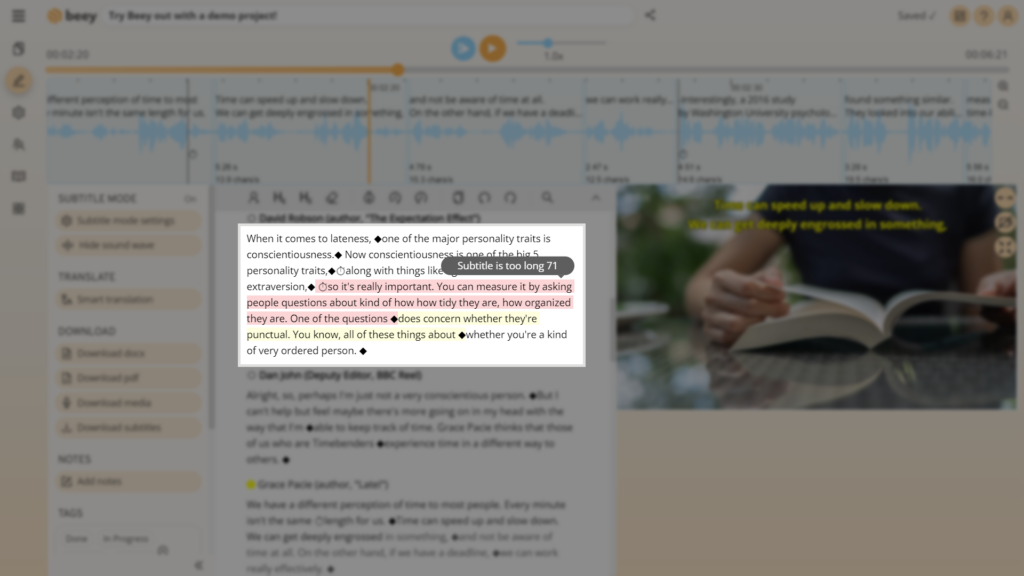A high-quality transcription of your recording will save you a great deal of time and effort in the editing process. However, the quality of the transcript is determined during the making of the recording itself. If you don’t underestimate your planning and adhere to our instructions, then any corrections of the resulting transcript will be done in a matter of minutes. What’s more, your listeners and viewers will certainly appreciate the clear, noise-free audio.

Make a high-quality audio recording:
- Eliminate all interfering noise
The most important thing that you must try to do is to eliminate all interfering background noise. Avoid recording your conversations in noisy surroundings such as cafés and other places with a higher concentration of people. If possible, make the recording indoors. In exterior locations there is a higher risk of your audio being rendered useless by wind or noise from the surroundings, which can often become apparent only after listening to the recording. - Avoid recording without microphones
You will probably be tempted to simply place a mobile phone or dictaphone on the table and start recording. Don\’t do it. Your recording will be of poor quality and you may not be able to use it. - Every participant should have their own microphone
In order for the recording to be high-quality and balanced, you will need a separate microphone for each participant. Passing one microphone back and forth is impractical and disruptive. Two lapel microphones or two desktop microphones are ideal. Don\’t forget to agree in advance on how you’ll be recording with the person you are interviewing. - The microphone should be as close as possible to the speaker’s mouth
You might have noticed at concerts that singers often hold their microphones only a few millimeters away from mouths. That\’s no coincidence. Make sure the speaker has the microphone close to their mouth throughout the conversation (not millimeters, but decimeters). It is also important that both participants have the microphone at similar distances from their mouths.
